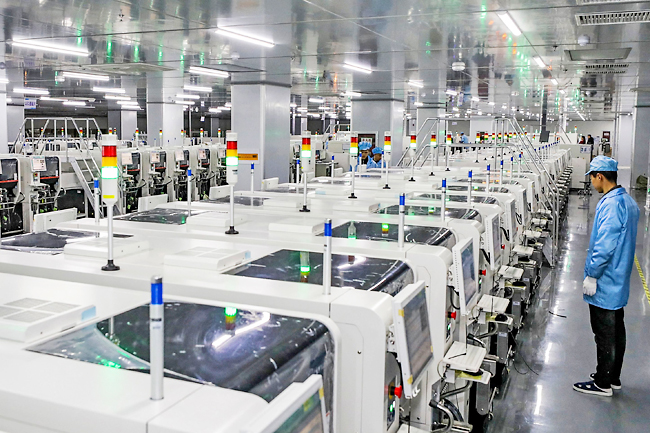BANGKOK (AP) – Asian economies are not doing as well as they could and growth in the region is forecast to slow to 4.5 per cent this year from 5.1 per cent in 2023, the World Bank said in a report released yesterday.
Debt, trade barriers and policy uncertainties are dulling the region’s economic dynamism and governments need to do more to address long-term problems such as weak social safety nets and underinvestment in education, the report said.
Asia’s economies are growing more slowly than before the pandemic, but faster than other parts of the world. And a rebound in global trade – trade in goods and services grew by only 0.2 per cent in 2023 but is projected to grow by 2.3 per cent this year – and easing financial conditions as central banks cut interest rates will help offset weaker growth in China.
“This report demonstrates the region is outperforming much of the rest of the world, but it’s underachieving its own potential,” World Bank’s chief economist for East Asia and the Pacific Aaditya Mattoo said in an online briefing.
“The leading firms in the region are not playing the… role that they should,” he added.

A key risk is that the United States (US) Federal Reserve and other major central banks might keep interest rates higher than before the pandemic. Another comes from the nearly 3,000 trade-distorting measures, such as higher tariffs or subsidies, that were imposed in 2023, the report said.
Most of those policies were set by major industrial economies such as the US, China and India.
China’s ruling Communist Party has set an official target for about five-per-cent growth this year, just below the 5.2-per-cent annual pace of last year.
The World Bank is forecasting that growth will slow to 4.5 per cent.
“China is aiming to transition to a more balanced growth path but the quest to ignite alternative demand drivers is proving difficult,” the report said.
Mattoo said Beijing still has a way to go in shifting its economy away from reliance on real estate construction to drive business activity, and just spending more money won’t fix the problem.
“The challenge for China is to choose efficient policies,” he said. “Fiscal stimulus will not fix structural imbalances,” he said.
What is needed are stronger social welfare and other programmes that will enable households to spend more, boosting demand that will then encourage businesses to invest.
The region could be doing much better with improved productivity and greater efficiency, Mattoo said.
Vietnam, for example, is drawing huge amounts of foreign investment as a favoured destination for foreign manufacturers, but its growth rate of about five per cent is below its potential.
“To be happy that Vietnam is growing at five per cent reflects the kind of underachievement we should not be happy about,” Mattoo said in an online briefing.
One key problem highlighted in the report is lagging improvements in productivity. Leading companies in Asia are far behind the leaders in wealthier nations, especially in technology-related areas.
The report faults governments for imposing restrictions on investment that prevent foreign companies from entering key parts of regional economies, a need to build skills and weak management.
Opening to more competition and investing more in education would help, it said.








